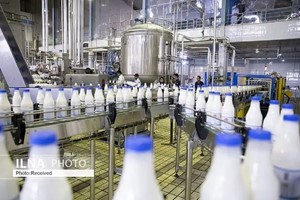Iraq's food industry is on the rise, fueled by a combination of government initiatives, private sector investment, and a renewed focus on local production. This presents exciting opportunities for businesses across the food supply chain.
Focus on Food Security
Food security remains a top priority for the Iraqi government. Recent investments in irrigation infrastructure, with major contracts signed for advanced sprinkler systems from companies like Bauer, aim to improve water management and boost agricultural yields. Additionally, the Governorate of Diwaniya announced a large-scale date palm cultivation project in the Al-Shanafiyah desert, creating jobs and diversifying agricultural output.
Investment in Processing and Packaging
The processing and packaging sector is experiencing a surge in activity. The opening of Etihad Food Industries' new flour mill in Babil, boasting a production capacity of one million tons per year, signifies a significant step towards self-sufficiency in flour production. This trend extends to other areas as well. Tetra Pak's partnership with Saudi Arabia's Al Rabie and Iraqi-based Alssad Company for Food aims to establish a production line capable of churning out 50 million packaged beverages annually, addressing food security concerns and offering new product options to Iraqi consumers.
Celebrating Local with "By Iraqi Hands" Label
The "By Iraqi Hands" label initiative, launched in February 2024 during the Iraq National Trade Forum (INTF), is a major development. This label recognizes and promotes high-quality food products made in Iraq. The INTF itself served as a platform for showcasing over 300 Iraqi food products, with an awards ceremony highlighting excellence and innovation in the sector. This initiative not only promotes Iraqi produce but also encourages international recognition and export opportunities.
Opportunities for B2B Partnerships
These developments paint a positive picture for B2B partnerships in the Iraqi food industry. Here are some key areas of potential:
Technology and Equipment: There's a growing need for modern farming technologies, food processing equipment, and cold chain solutions to minimize food loss and waste.
Packaging and Labeling Expertise: Companies with expertise in creating shelf-stable packaging and designing consumer-friendly labels can play a crucial role in supporting the growth of Iraqi food brands.
Training and Knowledge Sharing: Partnerships that provide training on food safety standards, quality control procedures, and modern agricultural practices can significantly benefit Iraqi food producers.
A Look Ahead
The Iraqi food industry is at a pivotal juncture. With a focus on food security, investment in processing and packaging, and initiatives like the "By Iraqi Hands" label, the future looks bright. B2B partnerships that offer the right mix of technology, expertise, and knowledge sharing can be instrumental in propelling Iraq's food industry towards sustainable growth and international recognition.











